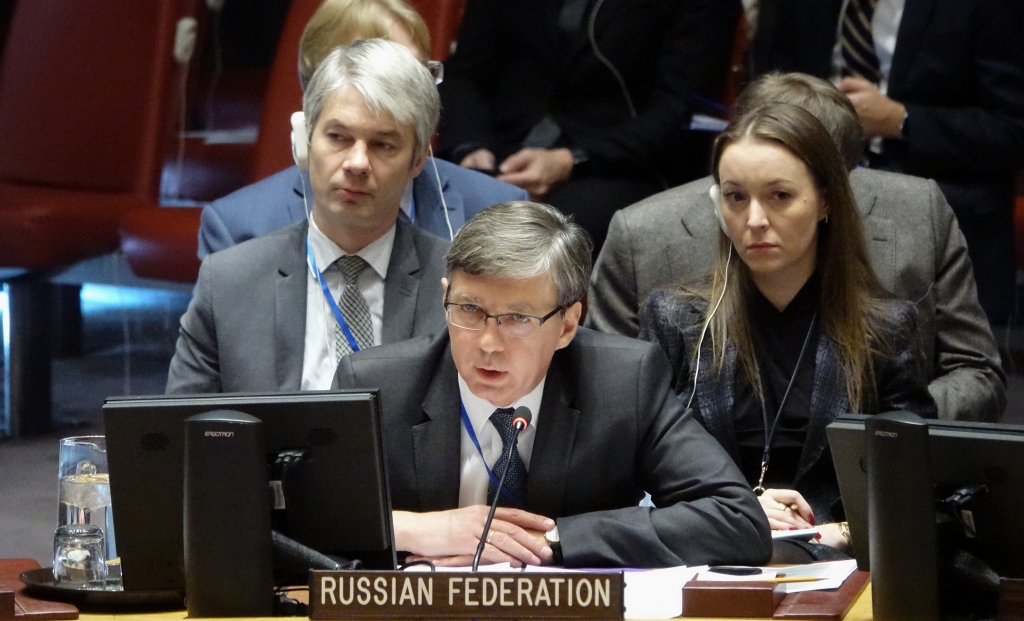Statement by Deputy Permanent Representative of the Russian Federation to the United Nations Mr. Evgeniy Zagaynov at the UN Security Council briefing on the situation with migrants in Libya
We would first like to thank the briefers for their information.
The serious problems raised during today’s meeting are very worrying. We share the concerns about information indicating the growth of trafficking in persons in the region.
The Security Council already discussed the problem in last week’s debate (see S/PV.8111) on the subject of trafficking in people in conflict situations, at which we also adopted resolution 2388 (2017). The issue is regularly brought up in discussions about the situation in Libya, as it has been this month.
As we have noted before, the transnational character of crimes related to trafficking in human beings in situations of armed conflict demands major international cooperation in combating it.
In order to be as effective as possible in dealing both with this problem and with other migrant-related issues it is essential to take an integrated approach that includes tackling its underlying causes, prosecuting the perpetrators and assisting their victims. The primary focus should be on what has created the problem of migrants.
With regard to the root causes of the situation in Libya, the scale of the activities there of the criminal groups associated with trafficking in persons is one of the many consequences of the severe and protracted crisis created by the violent military intervention in Libya’s internal affairs in 2011.
The inhuman treatment of migrants has been made possible against a background of continued political and institutional disunity in Libya. And Libya does not exist in a vacuum. The criminal business related to illegal migration clearly has a reach throughout the region that extends to Europe as well.
We have noted Libya’s intention to prosecute these criminal activities, and we should support its efforts to fight them and assist the victims. However, a long-term solution to the problem lies solely in the reunification of Libya through a political settlement in the framework of a broad-based dialogue under United Nations auspices.
Only the achievement of lasting peace and a consistent struggle against the terrorist threats in Libya will help lead to sustainably alleviating the problems of refugees and illegal migrants.
Under the pretext of the difficult situation of migrant rights in Libya, we are hearing suggestions about the need for urgent intervention.
We know that there are some who prefer to address similar problems independently by bypassing international law and in violation of the sovereignty of States. That will only exacerbate the difficult situation that emerged following the destruction of Libya. At the same time, key international organizations and structures would be well advised to pay close attention migrantrelated issues in that country. In that regard, it would be highly useful to strengthen cooperation with the African Union.
